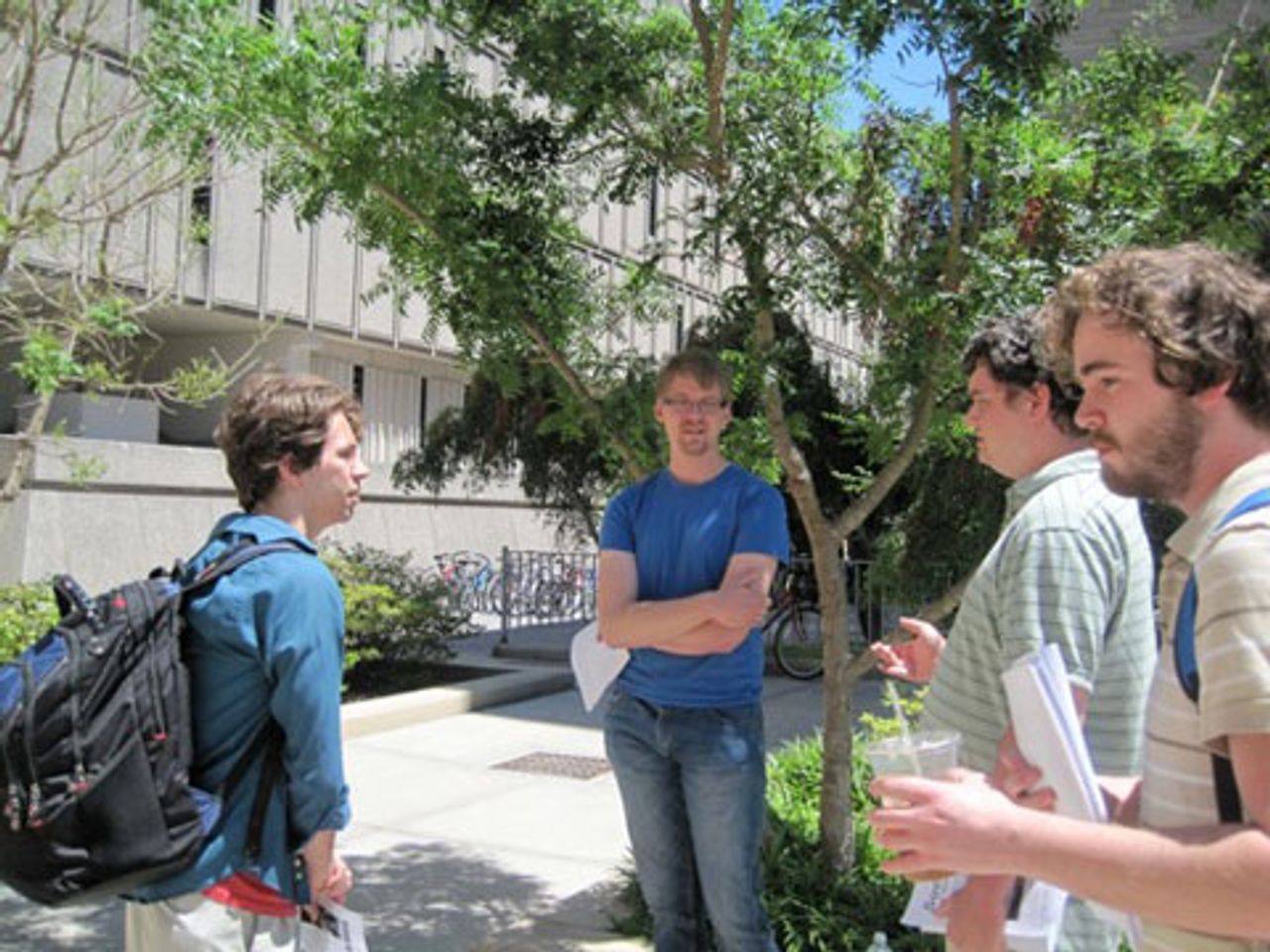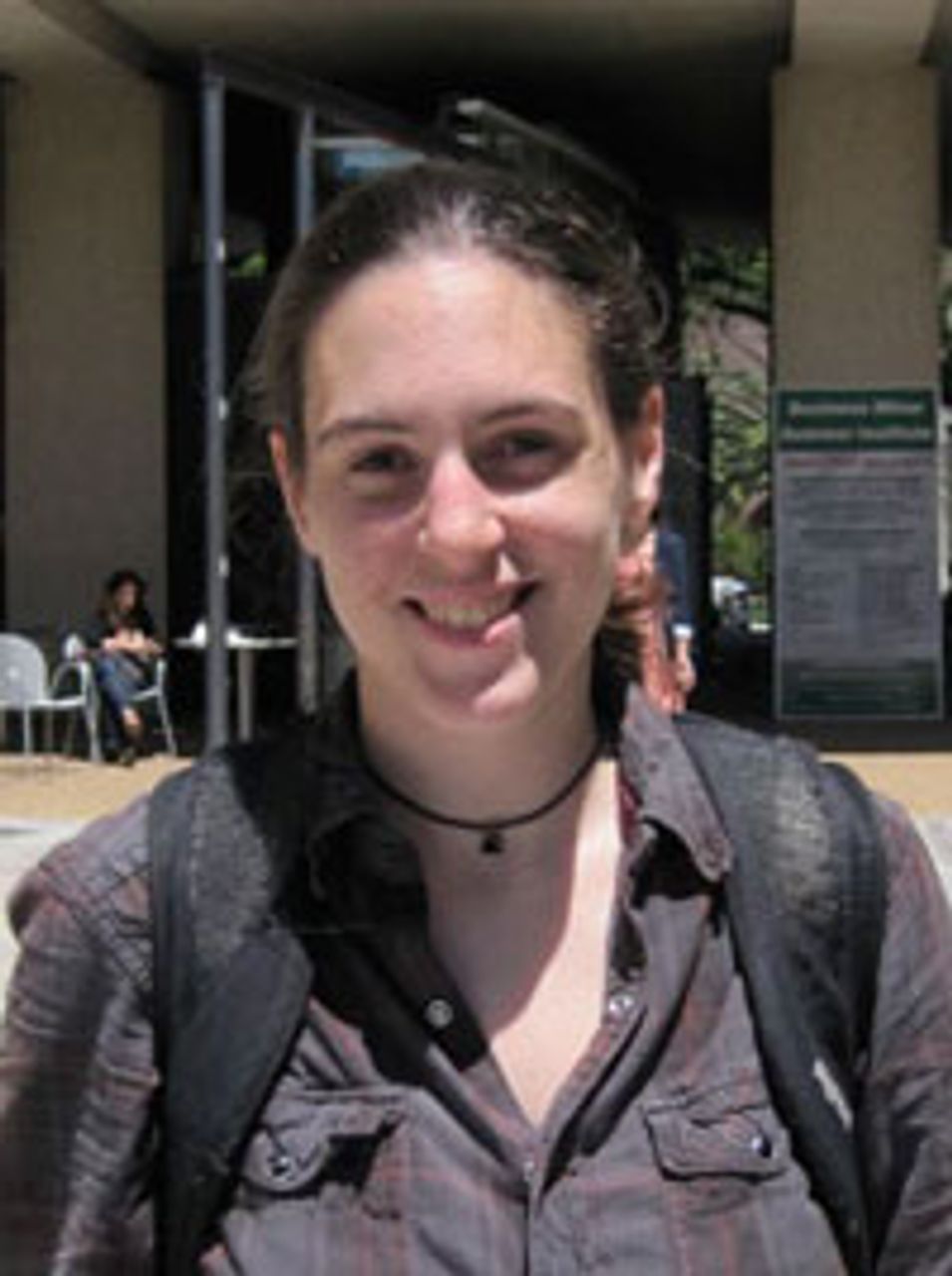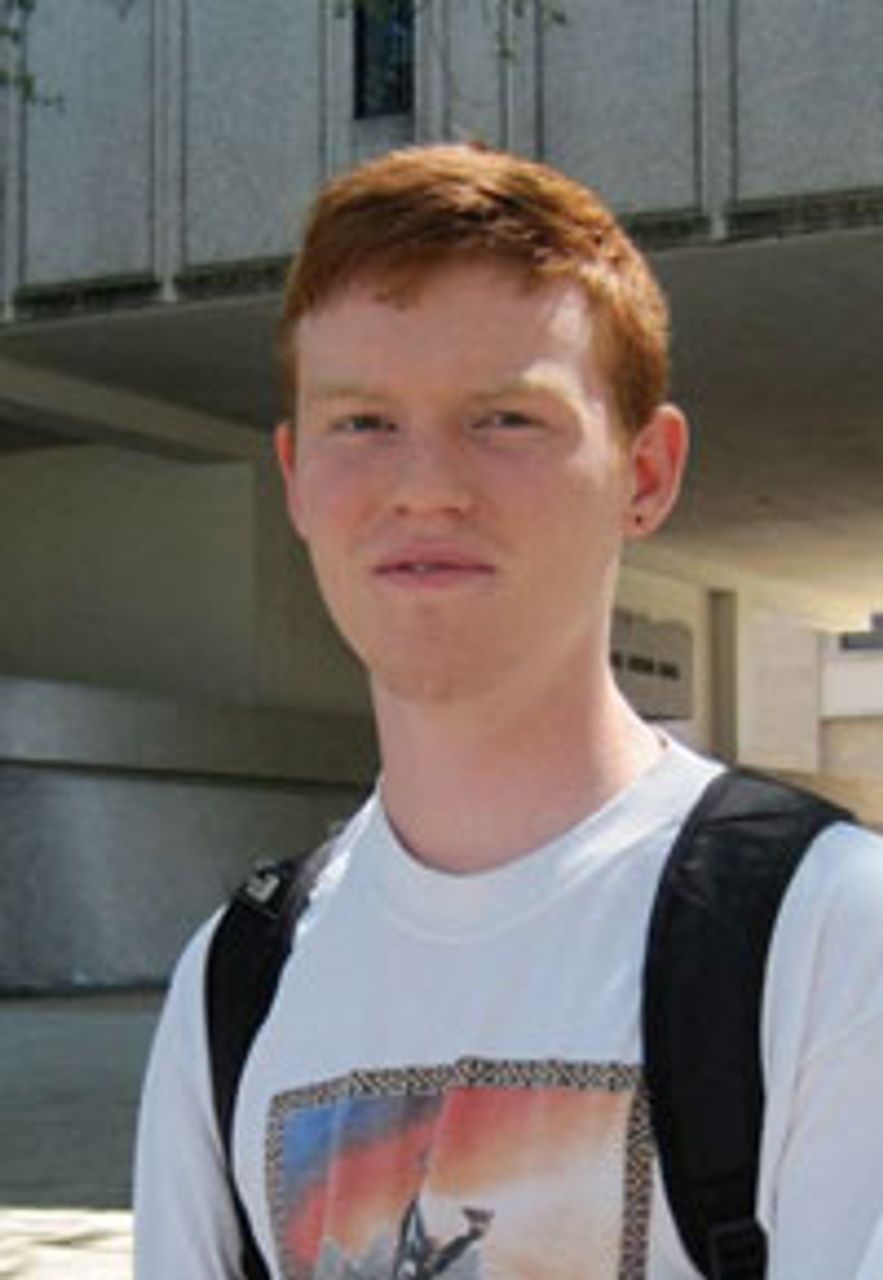Supporters of the Socialist Equality Party election campaign organized a meeting at Tulane University in New Orleans, Louisiana on Wednesday. The meeting was preceded by several days of leafletting and discussion among students and workers in the area.
 Campaigning on the Tulane campus
Campaigning on the Tulane campusThe SEP’s candidates, Jerry White for president and Phyllis Scherrer for vice president, are fighting to mobilize the working class in a political struggle for socialism, and against the two parties of big business. The meeting was addressed by SEP member Helen Halyard.
During the trip, Halyard and other SEP supporters visited the relatives of Gary Tyler, a black man who was arrested as a teenager in 1974 for a crime that he did not commit. Several of Tyler’s relatives also attended the meeting.
In her remarks, Halyard reviewed the situation facing workers and students, focusing on conditions in Louisiana. “Both parties are totally oblivious to the needs of working people who are confronting the worst social crisis since the Great Depression of the 1930s,” she explained.
“Twenty-four million people lack a full time job, and half the US population is categorized as poor or near poor. There has been a massive increase in extreme poverty, which has risen 130 percent since 1996, from 636,000 to 1.46 million.
“The city of New Orleans has been hit particularly hard during the past decade, first with Hurricane Katrina in 2004, a horrible natural disaster,” Halyard said. “It exposed the rot of the profit system and the huge polarization of society. Then there was the BP oil explosion in 2010, which set off the worst ever environmental disaster in US history.
"Since Katrina, New Orleans has lost one third of its population, and whole sections of the city were never rebuilt after the storm.”
Halyard discussed the political significance of the frame-up of Tyler, who was charged with shooting a 13-year-old white youth named Timothy Webber. Charges against Tyler were concocted in a racially charged atmosphere. The alleged murder weapon, which was not found during initial police searches of the bus, turned out to have been a stolen pistol from a police firing range, which later “disappeared.”
Witnesses who gave statements against Tyler in the initial trial later recanted them, saying they had been threatened by police. Three recommendations from the parole board to pardon Tyler were rejected by Democratic Party governors. To this day he is still imprisoned in the infamous Angola state prison for a crime he did not commit.
At the time, the Workers League, the predecessor of the Socialist Equality Party, organized a campaign among workers and youth to demand Tyler’s freedom. (See “Renewed calls for the freedom of Gary Tyler”)
After the meeting a lengthy discussion ensued for about an hour on a wide range of topics.
One student asked why the SEP was running in the elections given its analysis of the political system as bought and paid for by the corporate elite. Halyard explained that the aim of the election campaign was to fight for a program and party. The elections offered an opportunity of engaging workers and young people at a time when they are particularly conscious of politics, elevating the political consciousness of the working class, and winning them to a socialist perspective.
During the campaign before the meeting, several students stopped to discuss the situation facing students and workers.
 Amanda
AmandaAmanda, who is studying Spanish, said that she was opposed to increases in tuition. "It doesn't affect me personally because I received a scholarship to attend here, but several of my friends have had to leave the university because they could no longer afford it. Originally I come from Shreveport, Louisiana and went to a very good magnet public school, and I do not agree with the attacks they’re making on public education. I hope they do not do in Shreveport what was done in New Orleans, where a large majority of the schools are now charter schools.”
 Adam
AdamAdam works at a coffee shop and said that he often overheard officers talk about Hurricane Katrina. “At that time, they circled the police station with cars and carried out random shootings against the population. While a number of officers were recently prosecuted and given sentences, many of them know of other incidents where unarmed civilians, simply trying to protect themselves or flee for higher ground during the storm, were killed or injured.”
"There is this war zone mentality in the government that I do not at all agree with. The American system tries to convince the public that poor black teens or poor white teens for that matter are prone to be violent. They say it is part of their genetic make-up, so to speak. Many scientists have proven that this is not at all the case and that if you change the conditions for young people, they would greatly benefit. The arguments advanced are essentially a justification for continuing to make cuts and saying it doesn’t matter.
“I believe that an investment into education and jobs would give everyone a fair shot. Instead of the $4.5 trillion spent on wars for the past decade, the money should have gone into programs for the people."
